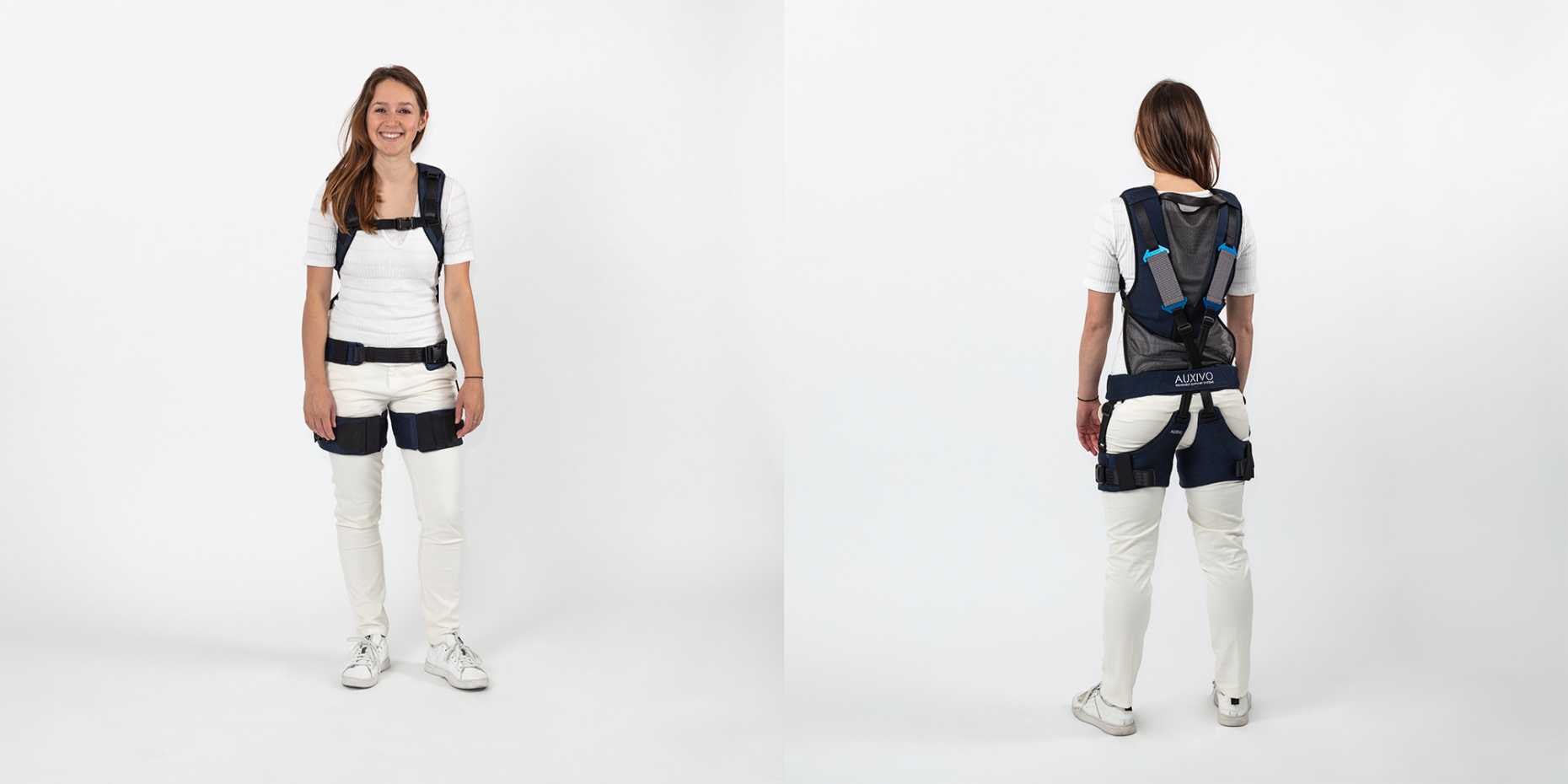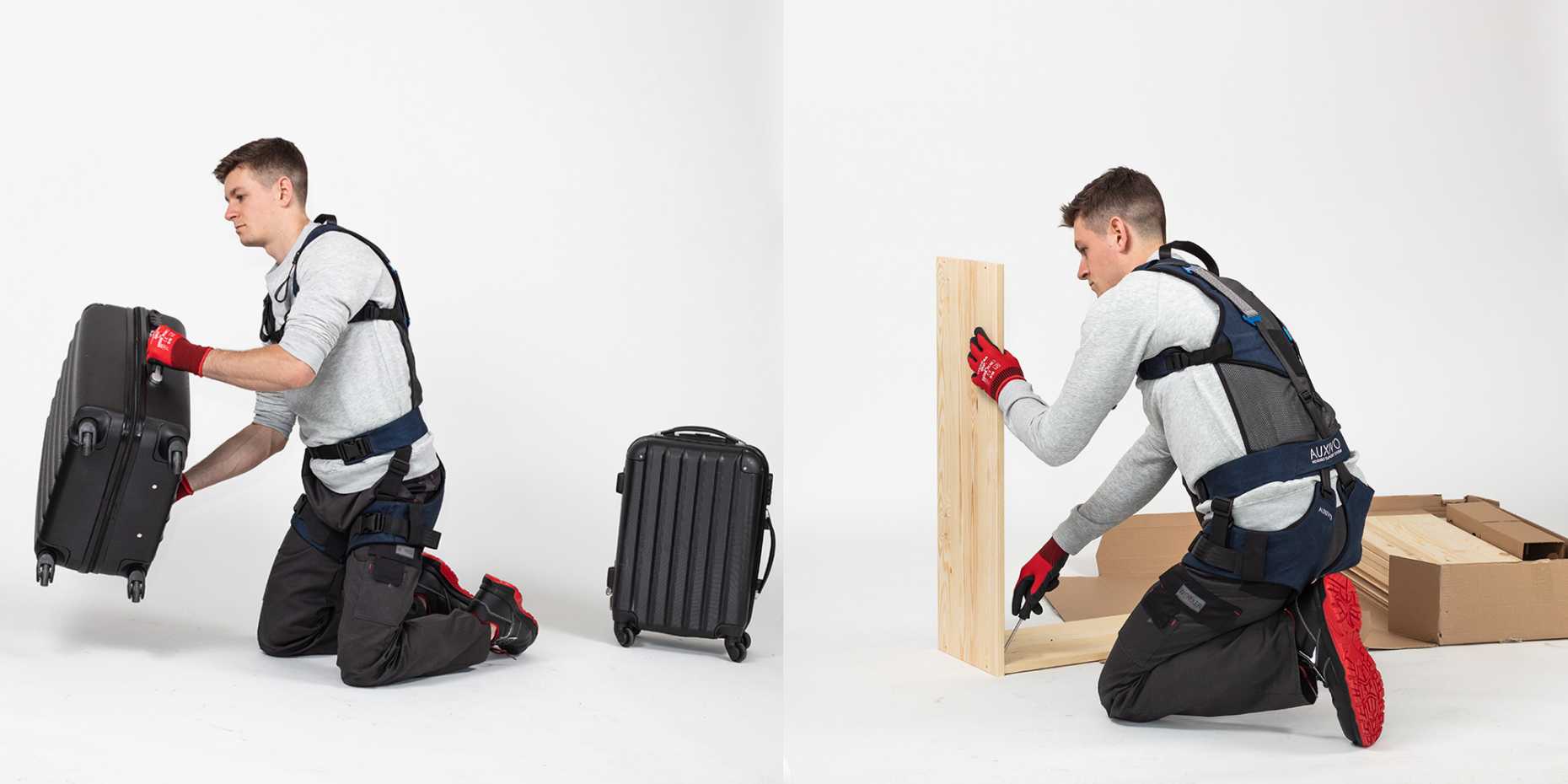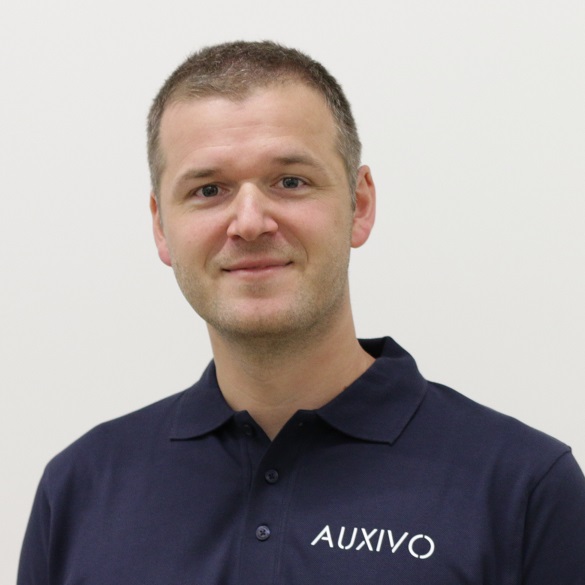Human super power thanks to wearable exoskeleton made for industry
Many companies have replaced manual labour with machines and robots. However, there are still many jobs where full automation is not possible or simply not desired. Auxivo, an ETH spin-off from the Rehabilitation Engineering Lab, develops exoskeletons for industrial applications to support workers who frequently lift and carry heavy objects.
An interview with Volker Bartenbach, founder of Auxivo.
Volker, how did you get the idea of creating an exoskeleton for the industry?
The idea to commercialise exoskeletons was born during the time I was doing my PhD at ETH conducting exoskeleton research and development for several years. It became obvious that support systems that the users can wear and take anywhere they go have huge potential. For our spin-off we initially targeted medical applications, but after some market research during the early phase of an ETH Pioneer fellowship (see below) we quickly pivoted to industrial applications as there clearly was a demand for wearable exoskeletons to support industry workers who conduct manual labour.

Who are your clients? Do you have collaborations?
We cooperated with industry partners at an early stage and developed our first products by means of permanent contact and exchange with future users. This way, we wanted to make sure that the products we develop are suitable for everyday use in an industrial setting.
We started off working with Swissport International AG, the world’s leading airport service provider, as they were looking for innovative solutions to reduce the workload for their baggage agents. Over time, we established partnerships with an increasing number of companies from fields such as logistics, construction, manufacturing, removal companies, healthcare professionals and many other applications where workers frequently lift and carry heavy loads.
What is the benefit of your wearable exoskeletons?
Our exoskeletons support their users when conducting specific tasks such as lifting a load from below hip level. Our exoskeletons are simple lightweight devices without any motors, electronics, or power supply. They rely on smart arrangements of supporting structure and energy storing elements. The elastic bands made of special material are attached in such a way that they provide support for the corresponding movement. The interplay of the attached elastic bands and the lightness of the harness - less than a kilo - means that the workers get extra power.
It is not our aim to support the user 100% while working, but rather to reduce the load on the user’s muscle by 10% to 50%. In industries where people are lifting several hundred times per shift, even a 10% reduction of the load on your body can make a big difference in how you feel at the end of your workday. This focus on smart and minimalistic solutions enables us to offer small, lightweight, affordable and easy to use devices compared to the complex robotic exoskeleton systems that were developed in the past.

What are your goals for 2020?
We recently closed a funding round and are now aiming to bring our first products to market in 2020 and 2021. We launched our first product “LiftSuit”, a textile exoskeleton that supports lifting and working in a forward leaning position, in May 2020. Other products are in the pipeline and will follow soon. We are currently still expanding our team and looking forward to introducing exoskeletons to new customers who are looking for new and innovative ways to support their workforce.

Contact / Links:
Prof. Roger Gassert, Rehabilitation Engineering Lab
Do you want to get more "News for Industry" stories?
external page Subscribe to our newsletter
external page Follow us on LinkedIn
Are you looking for research partners at ETH Zurich?
Contact ETH Industry Relation
ETH spin-offs: facts and figures
Since 1996, 437 spin-offs have been founded at ETH Zurich. ETH transfer, the technology transfer office at ETH Zurich, supports recognized ETH spin-offs in the founding process and in their first years of operation.
Pioneer Fellowships
With the help of the Pioneer Fellowship Programme, funded by the ETH Foundation, young researchers can develop innovative products and services based on their scientific work at ETH Zurich. A Pioneer Fellowship is awarded to young ETH entrepreneurial minds intending to develop a highly innovative product or service to be exploited commercially and/or for the benefit of society.